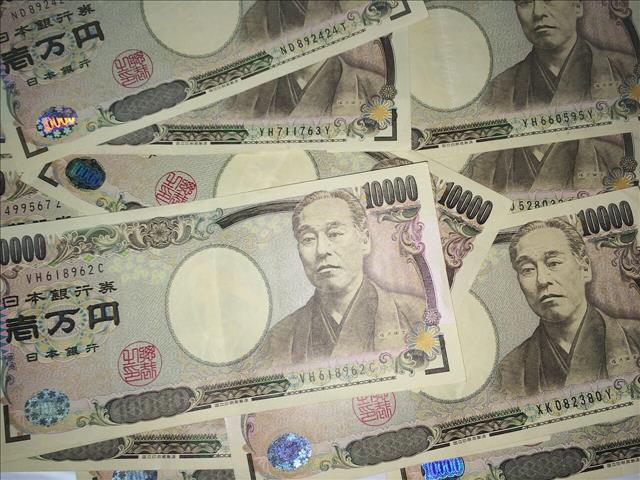
USD/JPY Drops Sharply On Intervention Reports: How It'll Impact Forex Markets
Maccabee / Pixabay
USD/JPY is trading in an aggressive manner today on reports Japan intervened to provide much-needed support to Yen . This marks the first time that Japan directly intervened in the market since 1998.
The pair initially soared 100 pips after the Bank of Japan reaffirmed its dovish policy stance, saying it plans to keep interest rates at low levels, contrary to other global central banks that have tightened their monetary policies to bring down the rampant inflation.
Get The Full Henry Singleton Series in PDF
Get the entire 4-part series on Henry Singleton in PDF. Save it to your desktop, read it on your tablet, or email to your colleagues
Q2 2022 hedge fund letters, conferences and more
How MicroStrategy Was Transformed From A Software Firm To A Bitcoin PlayMicroStrategy and its CEO, Michael Saylor, have played a significant role in news headlines about bitcoin since he transformed the company from a software firm into primarily a bitcoin play. That worked well for a while, but in 2022, things haven't gone so well. In fact, MicroStrategy has lost $2 billion on its bitcoin bet Read More
USD/JPY soared to almost 146 before the government confirmed it made interventions in the Forex market to boost falling yen. Masato Kanda, vice finance minister for international affairs, confirmed that the government took bold actions which impacted the major currency pair USD/JPY today.
Table of Contents show- 1. Helping Yen Survive
- 2. No Plans For Rate Hikes
- 3. Summary
A much-needed intervention was needed to prop up its national currency after it took a beating due to the Bank of Japan's decision to maintain ultra-low interest rates.
“We have taken decisive action (in the exchange market),” Kanda told reporters , responding in the affirmative when asked if that meant intervention.
As a result, the yen rallied nearly 600 pips against the greenback to touch low 140s before racing back towards 142. It wouldn't be surprising to see some Forex brokers issue a volatility warning to retail traders bearing in mind the sizes of today's moves in yen pairs.
“The market was expecting some intervention at some point, given the increasing verbal interventions we have been hearing over the past few weeks,” said Stuart Cole, a head macroeconomist at Equiti Capital in London.
However, Cole said the intervention is likely to provide only“temporary” relief for the battered yen. This seems to be the consensus view with many currency analysts still expecting USD/JPY to top 150 as the Fed continues to aggressively tighten its monetary policy.
No Plans For Rate HikesHaruhiko Kuroda, Governor of the Bank of Japan, said the bank will not be hiking interest rates“for some time” and does not plan on amending its dovish monetary policy at the moment. The statement came less than 12 hours after the U.S. Federal Reserve implemented a third consecutive interest rate hike of 75 basis points to drive down inflation closer to its 2% target.
The Fed emphasizes it will maintain its tight monetary policy in its battle against inflation , hinting at additional hikes ahead. The yen has lost almost 20% in 2022 due to the BOJ's dovish stance, forcing Japan to shore up its currency for the first time in 14 years.
The last time Japan intervened in the FX market was in 1998 during the financial crisis in Asia. The yen's downfall has particularly affected lower-income households in Japan as well as smaller businesses.
'The weakening of the yen has been increasingly painful due to rising imported costs, especially for low and middle-income households and small companies with limited pricing power,” Shigeto Nagai, Head of Japan Economics, Oxford Economics.
Nagai added that the Bank of Japan will never allocate monetary policy for Forex rate adjustments and will rather adhere to the yield curve control (YCC) policy. He said that Japan's central bank is unlikely to effectively intervene in the FX market and that it will be forced to reduce the damage from the battered yen through fiscal stimulus including subsidies and cash benefits to low-income households.
Many analysts believe that BOJ is unlikely to normalize its monetary policy even after Kuroda steps down in April 2023. Masayuki Kichikawa, head macro strategist at Sumitomo Mitsui, said the BOJ's decision to keep super low-interest rates was expected.
Kichikawa explained that the labor market in Japan is significantly less tight than in the United States as there's no notable pressure on wage growth. He acknowledged that there is some pressure on consumer prices in Japan, the majority of which comes from the exchange rate.
If the yen continues to weaken, the central bank may begin to assess the impact of a cheaper yen on inflationary pressures, though the most important thing to focus on now is how the FX rate responds to the sharp contrast between the U.S. and Japan's monetary policies.
SummaryUSD/JPY is trading around 1.5% lower today after the Japanese government admitted it was forced to intervene in the currency market to stop further Yen weakness. The pair previously hit a fresh 24-year high after BoJ reaffirmed its dovish stance and maintained ultra-low rates.
Get Smarter on Crypto and Macro . Get the 5-minute newsletter that keeps investors in the loop. Five Minute Finance is an independently run newsletter covering the latest and most important trends in crypto, macro, and global markets.

Legal Disclaimer:
MENAFN provides the
information “as is” without warranty of any kind. We do not accept
any responsibility or liability for the accuracy, content, images,
videos, licenses, completeness, legality, or reliability of the information
contained in this article. If you have any complaints or copyright
issues related to this article, kindly contact the provider above.
















Comments
No comment